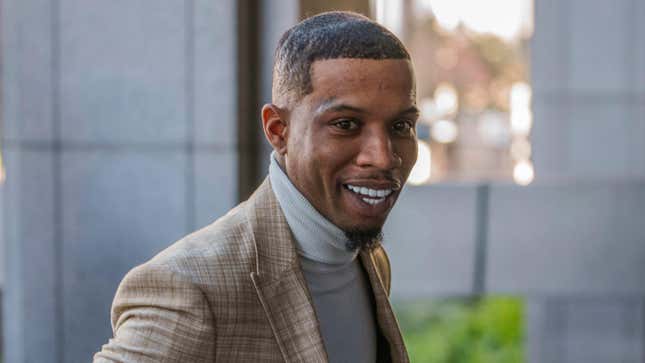Tory Lanez Sentenced to 10 Years in Prison for Shooting Megan Thee Stallion
“Mr. Peterson’s alcohol-use disorder, although not amounting to a defense, reduced his culpability," his attorney had argued for a reduced sentence.
JusticePolitics

On Tuesday, Tory Lanez (Daystar Peterson) was sentenced to 10 years in prison for shooting Megan Thee Stallion (Megan Pete) following a gathering at Kylie Jenner’s Los Angeles home in 2020. The hearing began on Monday, but because the proceedings lasted until the evening, Peterson’s sentence was not read until Tuesday morning.
Before the sentence was delivered, Peterson addressed the court and referred to Pete as his “friend” and “someone I still care for dearly to this day.” Regarding the night of the shooting, he said: “I said some very immature things that I shouldn’t have said. I revealed some secrets I shouldn’t have revealed.”
In December 2022, Peterson was found guilty on all three charges: one count each of assault with a semiautomatic firearm, one of discharging a firearm with gross negligence, and one of carrying a loaded, unregistered firearm in a vehicle. He faced a maximum sentence of 22 years in prison and possible deportation to Canada.
The prosecution had previously asked the judge for a 13-year sentence. Peterson’s attorneys—who maintain that he is innocent, but said that if he did shoot Pete, it was because of addiction and trauma issues—last week proposed probation and a stay in a residential drug treatment facility.
-

-

-

-

-

-

-

-

-

-

-

-

-

-

-

-

-

-

-

-

-

-

-

-

-

-

-

-

-

-

-

-

-

-

-

-

-

-

-

-








































